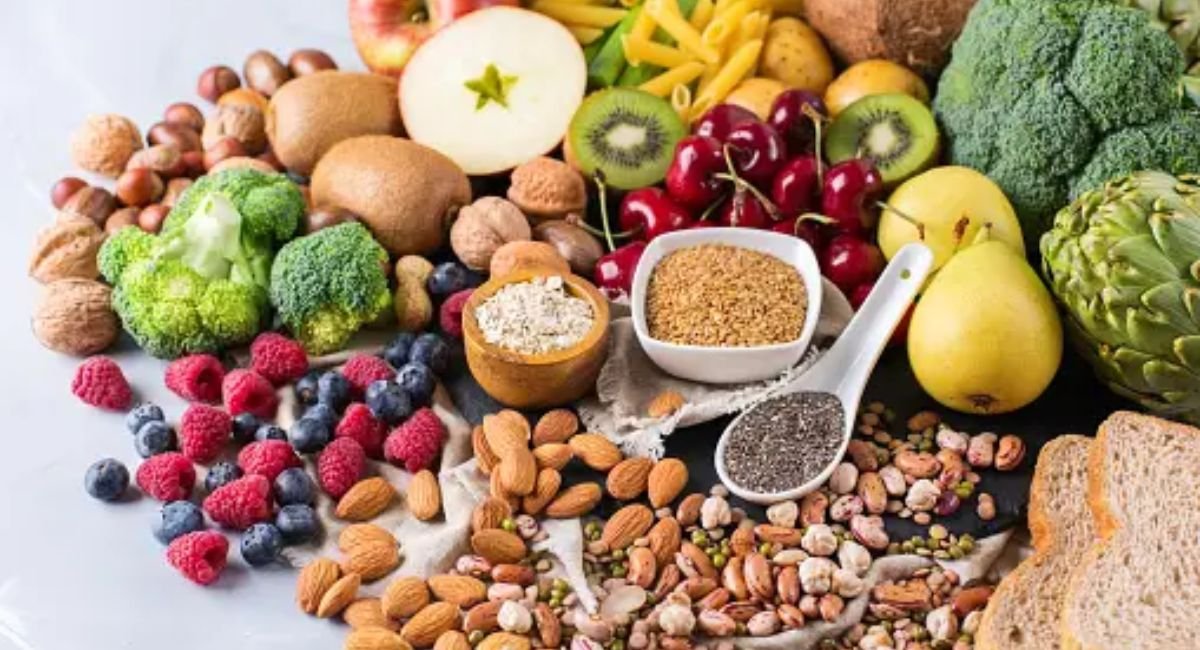Introduction
Heart health is a crucial aspect of overall well-being. Maintaining a healthy cardiovascular system can significantly reduce the risk of heart disease, which remains one of the leading causes of death globally. While a balanced diet and regular exercise are fundamental to heart health at mycardioforlife.com, supplements can play a vital role in supporting cardiovascular function. Mycardioforlife.com offers a range of high-quality supplements specifically designed to enhance heart health. In this comprehensive guide, we’ll explore the best heart health supplements, their benefits, and how they can contribute to a robust cardiovascular system.
Best Heart Health Supplements
When choosing heart health supplements, it’s essential to consider their effectiveness, safety, and scientific backing. The supplements listed here are widely recognized for their positive impact on cardiovascular health.
Omega-3 Fatty Acids
Omega-3 fatty acids are crucial for heart health. They help reduce inflammation, lower blood pressure, decrease triglyceride levels, and prevent the formation of arterial plaques. Sources of omega-3s include fatty fish like salmon, mackerel, and sardines, as well as flaxseeds, chia seeds, and walnuts. Omega-3 supplements, particularly those containing EPA and DHA, are highly recommended for individuals who do not consume enough of these nutrients through their diet.
Coenzyme Q10 (CoQ10)
Coenzyme Q10 is a naturally occurring antioxidant that plays a vital role in energy production within cells. It is particularly important for heart health, as it helps improve mitochondrial function and reduces oxidative stress. CoQ10 supplementation has been shown to enhance heart function, especially in individuals with heart disease or those taking statin medications, which can deplete CoQ10 levels in the body.
Magnesium
Magnesium is an essential mineral that supports numerous bodily functions, including muscle contraction, nerve function, and heart rhythm. Adequate magnesium intake is crucial for maintaining a healthy cardiovascular system. Magnesium helps relax blood vessels, which can reduce blood pressure and improve blood flow. Foods rich in magnesium include leafy green vegetables, nuts, seeds, and whole grains. Magnesium supplements can be beneficial for individuals who have a deficiency or those at risk of heart disease.
L-Carnitine
L-Carnitine is an amino acid derivative that plays a significant role in energy production by transporting fatty acids into the mitochondria, where they are burned for energy. This process is vital for heart health, as the heart relies heavily on fatty acids for fuel. L-Carnitine supplementation has been shown to improve exercise performance, reduce symptoms of angina, and enhance overall cardiovascular function. Red meat, especially lamb and beef, is a primary source of L-Carnitine, but supplements are available for those who need additional support.
Fiber Supplements
Dietary fiber is essential for maintaining a healthy digestive system and has significant benefits for heart health. Soluble fiber, found in oats, barley, beans, and fruits, helps lower cholesterol levels by binding to cholesterol particles and removing them from the body. Insoluble fiber, found in whole grains and vegetables, aids in maintaining regular bowel movements and preventing constipation. Fiber supplements, such as psyllium husk, can be an effective way to increase fiber intake and support cardiovascular health.
Polyphenols
Polyphenols are plant compounds with potent antioxidant properties that protect the heart from oxidative stress and inflammation. These compounds are found in a variety of foods, including fruits, vegetables, tea, coffee, and dark chocolate. Polyphenols help improve endothelial function, lower blood pressure, and reduce the risk of heart disease. Supplements containing concentrated polyphenols, such as resveratrol and green tea extract, can provide additional cardiovascular benefits.
Vitamin D
Vitamin D is crucial for overall health, including heart health. It helps regulate calcium levels, which is essential for maintaining proper heart and muscle function. Vitamin D deficiency has been linked to an increased risk of cardiovascular disease, hypertension, and heart failure. Sunlight is a primary source of vitamin D, but it can also be obtained from fortified foods and supplements. Ensuring adequate vitamin D levels is important for supporting a healthy cardiovascular system.
Vitamin K2
Vitamin K2 plays a crucial role in calcium metabolism, helping direct calcium to the bones and preventing it from accumulating in the arteries. This prevents arterial calcification, which is a significant risk factor for heart disease. Fermented foods like natto, cheese, and yogurt are excellent sources of vitamin K2. Supplementation can be particularly beneficial for individuals at risk of cardiovascular issues, ensuring proper calcium utilization and protecting arterial health.
Folic Acid
Folic acid, or vitamin B9, is essential for the formation of red blood cells and the prevention of homocysteine buildup in the blood. High levels of homocysteine are associated with an increased risk of heart disease. Folic acid helps convert homocysteine into methionine, an amino acid necessary for various bodily functions. Leafy green vegetables, citrus fruits, and legumes are rich in folic acid. Supplements can help individuals meet their daily requirements and support heart health.
Potassium
Potassium is a vital mineral that helps regulate blood pressure by balancing the effects of sodium in the body. Adequate potassium intake is crucial for maintaining a healthy heart rhythm and preventing hypertension. Foods rich in potassium include bananas, oranges, potatoes, and spinach. Potassium supplements can be beneficial for individuals who do not consume enough potassium through their diet or those with specific health conditions that affect potassium levels.
Garlic Supplements
Garlic has been used for centuries for its medicinal properties, particularly for heart health. It contains compounds like allicin, which have been shown to reduce blood pressure, lower cholesterol levels, and improve overall cardiovascular function. Fresh garlic can be incorporated into the diet, but garlic supplements are available for those who prefer a more convenient option. Regular consumption of garlic or garlic supplements can significantly benefit heart health.
Green Tea Extract
Green tea extract is rich in polyphenols, particularly epigallocatechin gallate (EGCG), which have powerful antioxidant and anti-inflammatory properties. These compounds help protect the heart by reducing oxidative stress, improving blood vessel function, and lowering blood pressure. Drinking green tea or taking green tea extract supplements can provide numerous cardiovascular benefits, contributing to overall heart health.
Plant Sterols
Plant sterols are naturally occurring compounds found in fruits, vegetables, nuts, and seeds. They have a structure similar to cholesterol and can help block the absorption of dietary cholesterol in the intestines. This leads to lower cholesterol levels and a reduced risk of heart disease. Plant sterol supplements are available for individuals who need additional support in managing their cholesterol levels.
Red Yeast Rice
Red yeast rice is a traditional Chinese medicinal product that contains naturally occurring statins, which help lower cholesterol levels. It has been shown to reduce total cholesterol, LDL cholesterol, and triglycerides. Red yeast rice supplements can be an effective natural alternative for individuals who need to manage their cholesterol levels but prefer not to take prescription medications.
Turmeric and Curcumin
Turmeric, a bright yellow spice, contains curcumin, a compound with potent anti-inflammatory and antioxidant properties. Curcumin helps reduce inflammation in the cardiovascular system, improve endothelial function, and lower the risk of heart disease. Incorporating turmeric into the diet or taking curcumin supplements can provide significant heart health benefits.
Probiotics
Probiotics are beneficial bacteria that support gut health, which is closely linked to overall health, including heart health. A healthy gut microbiome can help reduce inflammation, improve cholesterol levels, and enhance heart function. Probiotic supplements can help maintain a balanced gut microbiome, supporting cardiovascular health.
Resveratrol
Resveratrol is a polyphenol found in red wine, grapes, and certain berries. It has been shown to have anti-inflammatory and antioxidant properties that protect the heart. Resveratrol supplements can help improve blood vessel function, lower blood pressure, and reduce the risk of heart disease.
Hawthorn Berry
Hawthorn berry is a traditional herbal remedy known for its cardiovascular benefits. It helps improve blood flow, reduce blood pressure, and strengthen heart muscle contractions. Hawthorn berry supplements can be beneficial for individuals with heart disease or those looking to support their heart health naturally.
Citrus Bergamot
Citrus bergamot is a fruit that contains compounds known to lower cholesterol levels and improve cardiovascular health. Bergamot supplements can help reduce total cholesterol, LDL cholesterol, and triglycerides, supporting overall heart health.
Ashwagandha
Ashwagandha is an adaptogen that helps the body manage stress. Chronic stress can negatively impact heart health, leading to hypertension and other cardiovascular issues. Ashwagandha supplements can help reduce stress, lower blood pressure, and support heart health.
Beetroot Powder
Beetroot powder is rich in nitrates, which help improve blood flow and reduce blood pressure. Nitrates are converted into nitric oxide in the body, a compound that relaxes blood vessels and enhances cardiovascular function. Beetroot powder supplements can be an effective way to support heart health.
Taurine
Taurine is an amino acid that supports cardiovascular function by helping regulate heart muscle contractions, reducing blood pressure, and protecting against oxidative stress. Taurine supplements can be beneficial for individuals with heart conditions or those looking to support their heart health.
Alpha-Lipoic Acid
Alpha-lipoic acid is an antioxidant that helps protect the heart from oxidative stress and inflammation. It also helps improve mitochondrial function and energy production. Alpha-lipoic acid supplements can support heart health by reducing the risk of cardiovascular disease.
Proanthocyanidins
Proanthocyanidins are powerful antioxidants found in foods like grapes, berries, and cocoa. They help protect the heart by reducing oxidative stress, improving blood vessel function, and lowering blood pressure. Proanthocyanidin supplements can provide additional cardiovascular benefits.
Moringa
Moringa is a nutrient-dense plant known for its numerous health benefits, including supporting heart health. It contains antioxidants, vitamins, and minerals that help reduce inflammation, lower blood pressure, and improve overall cardiovascular function. Moringa supplements can be a valuable addition to a heart-healthy regimen.
Lifestyle Tips for Heart Health
Supplements can significantly support heart health, but they work best when combined with a heart-healthy lifestyle. Here are some essential lifestyle tips:
- Healthy Diet: Consume a balanced diet rich in fruits, vegetables, whole grains, lean proteins, and healthy fats. Limit the intake of saturated fats, trans fats, sodium, and added sugars.
- Regular Exercise: Engage in at least 150 minutes of moderate-intensity aerobic exercise or 75 minutes of vigorous-intensity exercise per week. Include muscle-strengthening activities on two or more days a week.
- Quit Smoking: Smoking cessation is crucial for heart health. Seek professional help if necessary to quit smoking.
- Manage Stress: Practice stress-reducing techniques such as mindfulness, meditation, yoga, and deep breathing exercises.
- Limit Alcohol Intake: If you consume alcohol, do so in moderation. The recommended limit is up to one drink per day for women and up to two drinks per day for men.
- Regular Check-ups: Schedule regular check-ups with your healthcare provider to monitor your heart health and make necessary adjustments to your lifestyle or medications.
Conclusion
Heart health is fundamental to overall well-being and longevity. While a healthy diet and lifestyle are essential, supplements can provide additional support to maintain a robust cardiovascular system. The best heart health supplements, such as omega-3 fatty acids, CoQ10, magnesium, and others, offer various benefits, from reducing inflammation and lowering blood pressure to improving heart function and preventing arterial calcification. Choosing high-quality supplements, understanding proper dosages, and combining them effectively can enhance their benefits. Remember, supplements are most effective when used in conjunction with a heart-healthy lifestyle. Regular exercise, a balanced diet, stress management, and routine medical check-ups are crucial for maintaining optimal heart health. By integrating these strategies, you can significantly reduce the risk of heart disease and enjoy a healthier, longer life.




